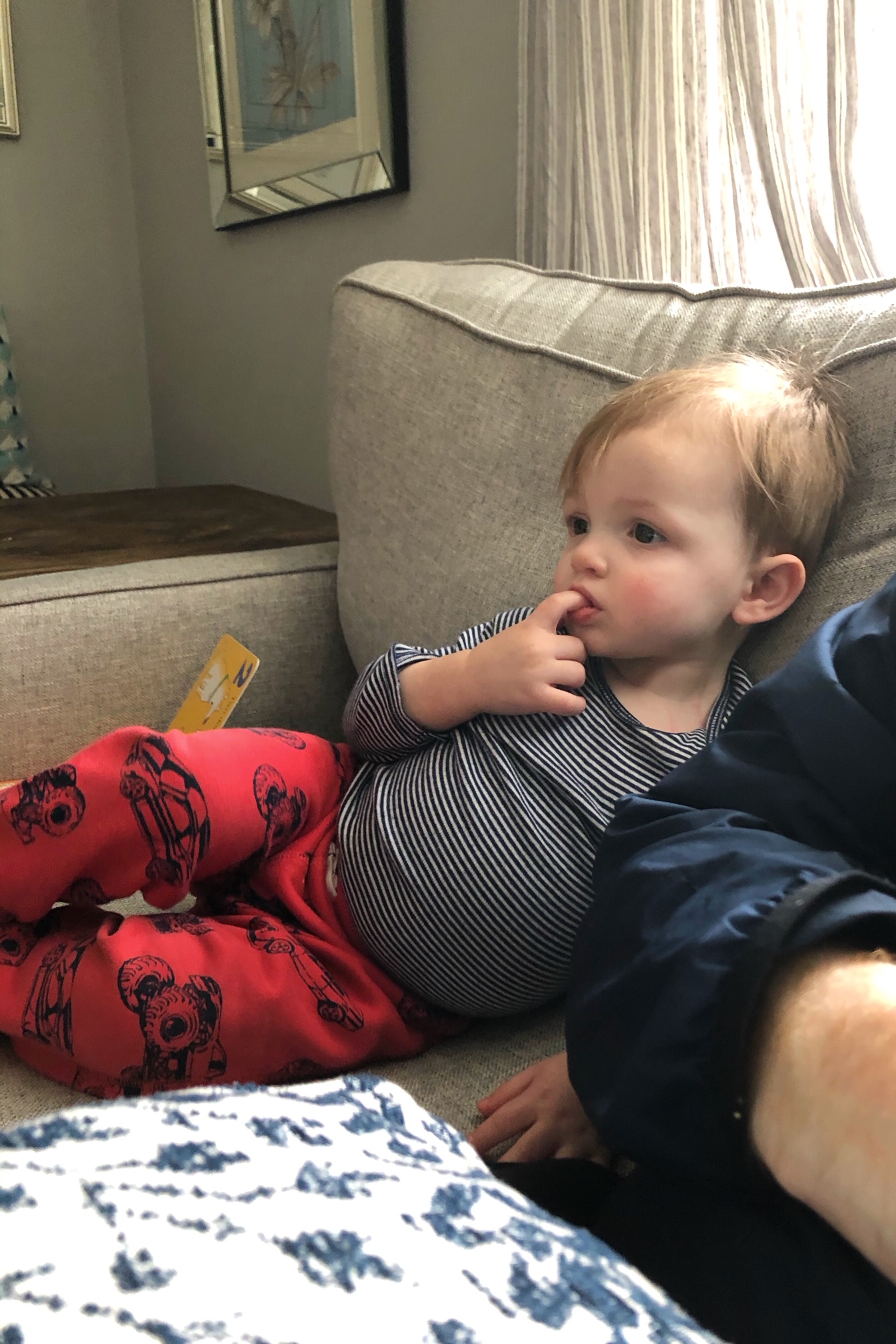
I was taking my 18-month-old on a walk around the neighborhood recently and when he spotted our neighbor he barrelled towards her with arms outstretched and demanded, “Huggy, huggy.” She warmly said hi but told him “no huggies today.” I picked him up and as we walked away he looked back at her confused saying, “Huggy? Huggy?” unable to conceive of a reason why someone wouldn’t take him up on his generous offer. Obviously, there is no way for me to explain the real reason why we aren’t running around hugging each other these days. But I was imagining how I would talk to James about upsetting things when he’s older.
One of the most difficult aspects of parenting is deciding how and when to talk to your children about upsetting things. You want to protect them from being scared or anxious but you also know it’s important for them to have some awareness of the world as they mature and eventually become young adults. Every parent needs to decide on their own age appropriate balance. I recently read some articles about this subject and thought they brought up some really great advice that parents would benefit from.
The articles I read were Is The News Too Scary for Kids and How to Talk to Kids About Coronavirus. Here are some of the key points and my thoughts:
What Age is Appropriate
It seems like experts recommend waiting until your child is 7 to start talking about potentially upsetting current events. Kids younger than 7 “have a hard time differentiating between what’s real and what’s fake, what’s near and what’s far, what’s possible and what’s highly improbable.” So they won’t be able to really regulate their emotions and reactions. Obviously if it’s something that directly affects them then you have to do your best to explain it in a way they can understand.
Ask Them What They Know
Kids are generally more perceptive than we remember. I remember times as a child when adults around me would try to talk to me about something and even as a young girl being offended they were telling me information I already knew. It’s a good idea to start the conversation with finding out how much they know already, correcting misinformation, and asking them what questions they have.
Be Aware of Your Energy
In my own experience, even young toddlers can sense the energy of their parents. If mom and dad are incredibly anxious, or angry, or weeping, while they say everything is going to be ok, the child is unlikely to hear the message. Process your own emotions before talking to your kids. Try to be calm and reassuring and focus on their emotions and don’t dismiss their fears.
Talk in a Way They Can Understand
Parents know their kids better than anyone. When I was a child, I appreciated a more adult style of conversation. But I know many younger children might get scared or confused if their parents suddenly started talking like the nightly news. You know your child’s level of understanding and the best way to communicate with them. You could jot down some notes or practice how best to talk to them before having a conversation.
Have you talked to your kids about COVID-19? How did it go?


the NYPL has a good resource on this!
https://www.nypl.org/about/remote-resources/kids-and-teens/talking-coronavirus?utm_source=eNewsletter&utm_medium=email&utm_content=NYPLConnect_20200401&utm_campaign=NYPLConnect
Thanks so much Tara!
Good advice. Good job, Mama. Be Well. xxx (virtual ones)